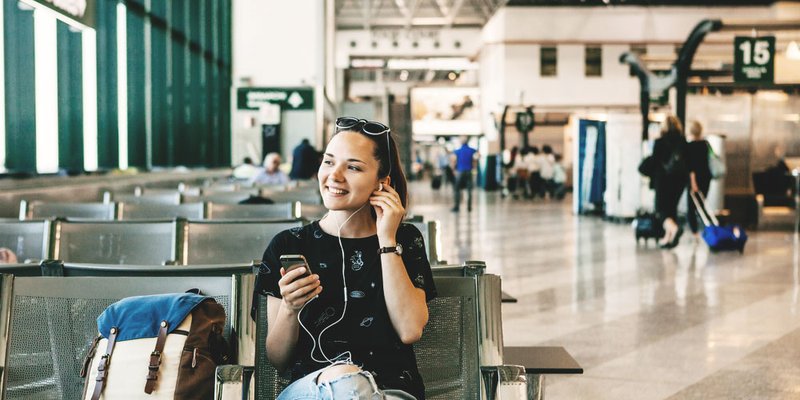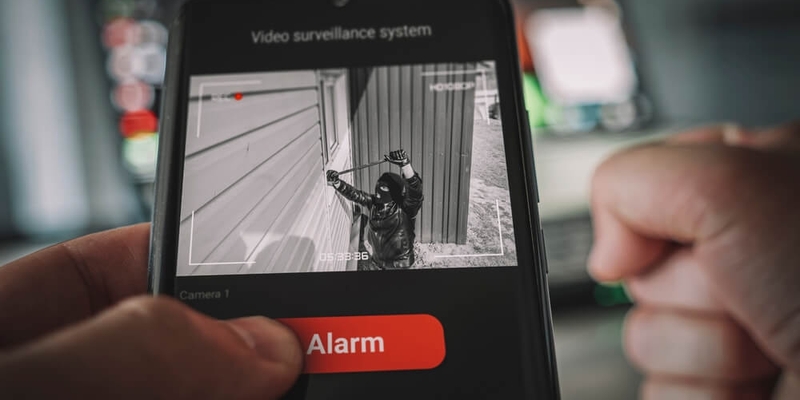
If you are not redirected within 30 seconds, please click here to continue.
Samedi: 10h – 16h HAE

If you are not redirected within 30 seconds, please click here to continue.
If you are not redirected within 30 seconds, please click here to continue.
What to Do if You Think Severe Weather Will Affect Your Travel Plans

Severe weather can delay flights and bring traffic to a halt. But, what if you hear the forecast and it indicates that severe weather will occur at your travel destination? Here are a few tips to help you prepare for severe weather - and save a lot of hassles so you’re not stuck at the airport.
Note: Don't miss the section at the end on new reimbursement rules for delayed flights and flights that don't arrive on time.
When Severe Weather Affects Your Trip
Fog. Blizzards. Floods. Hurricanes. Severe weather can bring any vacation or travel plans to a halt. And, sometimes, it’s not even the severe weather event but flight delays and cancellations affected by the system. While an airport will do all they can to accommodate travellers, there’s a lot you can do so you’re not stranded at the airport.
Here are a few tips:
Before You Leave for the Airport
To avoid standing in line, you might want to look online or sign up for flight alerts.
You can also:
Check-In with Your Carrier
Calling ahead or hopping online saves you time. If you drive to the airport during severe weather, you might experience further delays. Your carrier should have alerts on their website.
Sign Up for Alerts
A fast and convenient way to keep track of flights is with travel alerts. Sign up with your carrier and use your smartphone or another mobile device.
Visit Airline Travel Sites
Sites like Flight Aware let you track where your flight is originating from. This can help you better determine a time frame for its arrival.
Bookmark Your Carrier’s Contact Numbers
Calling your carrier saves you from waiting in line. With a bookmark in your phone, it’s easy to reach someone directly (even if you have to call while you're stuck in line).
Use Travel and Weather Apps
You can download Next Flight and Weather.com to your mobile device or phone. The Next Flight app lets you view new flights if yours is cancelled. While RadarNow, Weather XL Canada PRO and RadarCastPro can alert you to recent weather alerts that might affect your trip.
Check Social Media
Most carriers have someone who’s on social media and can help with rebooking-related questions. Check on the carrier’s Twitter or Facebook pages.
When You're At the Airport
Having a plan at the airport can help you to stay calm (especially when others are panicking or hostile).
Here are a few suggestions:
Check with Your Airline First
Every airline will have a plan in place. Check with a flight attendant. They might offer sleeping accommodations for cancelled flights or they may offer to rebook you. Some airlines will compensate travellers as flight cancellations might be out of their control (see the last section for reimbursement rules).
Depending on where you travel, some airlines don’t offer compensation with rebookings and cancellations. Hence, the need for travel insurance to safeguard your flight costs.
Travel insurance coverage can include:
- Reimbursement if you have to stay at a nearby hotel. It can also cover meals and miscellaneous expenses.
- Coverage for lost or damaged bags and delayed or cancelled flights.
- Protection if you or a family member gets sick. Travel medical insurance can cover doctor's visits, the dentist, emergency room visits and hospital stays.
Ask About Rebookings
Your airline will likely waive your rebooking fee and they may allow you to change flights for up to seven days from the scheduled travel date. Outside of that window, they might charge a penalty.
Plan a Backup Destination
If you plan to land in a different city and drive to your destination or take a train, ask for a refund. Some airlines will give you the full value of your current ticket and you can apply it to a new flight for a different city.
Request a Refund
Ask your airline for a refund if you’re cancelling your trip due to severe weather. If they won’t issue a refund, ask for a credit.
Check the Flight Status Board
If you see flights scheduled at later times cancelling, chances are yours might, too. Ask an agent if you should head to the carrier’s ticket counter or if they can rebook you there at check-in.
Break the Monotony
If you're stuck at the airport and travelling with children, break up the boredom. Tour the airport and do a little shopping. Or, visit one of the eateries or restaurants. Travelling solo? Get up and stretch your legs and grab a bite to eat. Then pop in a movie on your phone or tablet or read a book.
Check-In with Your Hotel
If your flight is delayed by several hours, contact your hotel to confirm that you will not be a no-show. Get the person's name you spoke to at the front desk and give them your flight number.
If You’re Stuck on a Delayed Flight or at the Airport Due to Severe Weather
Some flights can’t take off or land due to severe weather. Hence, preparing for a delayed flight or extended time at the airport can help you feel confident (so panic-mode won't set in).
Here are a few suggestions:
If You're Stuck at the Airport
If you’re evacuated, listen for instructions. At the airport, security and flight crew will help lead you to shuttle buses or a designated area. If you’re on a flight that’s being evacuated, the flight crew will make announcements and offer help for anyone that needs assistance.
If You're Stuck on a Flight
Listen for the pilot to make announcements. They might have to land in a different airport. Smaller planes might have a hard time landing if there's severe icing or high winds.
For flights stuck on the tarmac, there are specific time limits for how long they can hold passengers. It varies from country to country but airlines will usually provide you with drinking water and food while they are delayed. Canadian travellers have special rights with any flights that fly into, leave from or connect in Canada.
Reimbursement for Canadian Travellers
Special air passenger rights introduced recently add further support for Canadian travellers. These rule changes are for planes delayed on the tarmac and flights that don't arrive on time.
Flight regulation rules include:
Overbooked Delayed Flight Compensation
- Delays of less than six hours, passenger reimbursement is a minimum of $900
- Delays of six up to nine hours, passenger reimbursement is a minimum of $1,800
- Delays over nine hours, passenger reimbursement is a minimum of $2,400
Bags and Instruments
- Airlines have to pay passengers a maximum of $2,100 and any baggage fees they incurred if their bags are lost
- Carriers must outline specific Terms and Conditions for musical instruments that are carried on a flight or listed as checked baggage.
Treatment of Passengers
- Planes that are parked on the tarmac with passengers inside must keep the air well-ventilated. Carriers are required to provide passengers with food/snacks and beverages.
- Planes parked on the tarmac longer than three hours that can't leave in the next 45-minutes must return to their gate and allow passengers to disembark from the plane.
Reimbursement for Flights That Don't Reach Destinations On Time
As of December 15, 2019, Canadian travellers will be reimbursed for flight delays that cause planes not to arrive at their final destination on time:
For larger carriers
- Delays of three up to six hours, passenger reimbursement is $400
- Delays of six up to nine hours, passenger reimbursement is $700
- Delays over nine hours, passenger reimbursement is $1,000
For smaller carriers
- Delays of three up to six hours, passenger reimbursement is $125
- Delays of six up to nine hours, passenger reimbursement is $250
- Delays over nine hours, passenger reimbursement is $900
Airline passengers will have up to one year to file a claim for reimbursement with their specific airline. Any rebookings will not include a surcharge or additional costs.
Special Note: These reimbursement rules apply specifically to a delay or cancelled flight if it was within the carrier's control and doesn't include safety risks. Hence, purchasing travel insurance is still one of the best ways to protect a trip.
Safeguard Your Trip with the Best Travel Insurance
Severe weather can adversely affect a trip. But, by checking in with your carrier, tracking your flight and having a back-up travel plan, you can prepare for unexpected delays. Purchase travel insurance to cover flight cancellations and delays and watch for weather alerts and announcements from your carrier. To find the best travel insurance, contact Rates.ca.
With Rates.ca, you can compare travel insurance quotes from Canada's leading insurers (and travel with confidence!). Compare quotes here.
Get money-saving tips in your inbox.
Stay on top of personal finance tips from our money experts!










